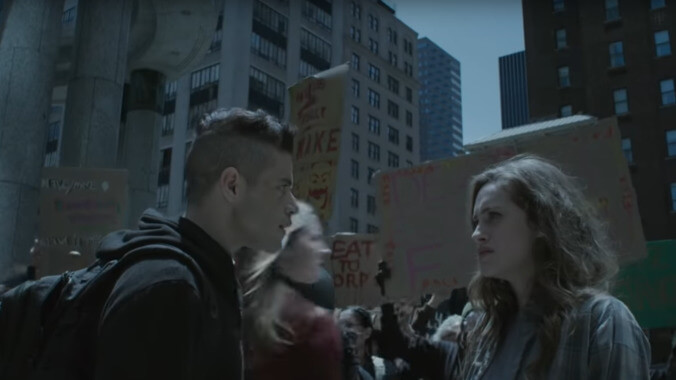Now seems like a good time to explore why it's so hard to write fictional revolutions

A lot of mainstream fiction about revolutionary movements isn’t all that great, which seems bizarre since rebellion against brutally unjust systems and the evil sacks of shit responsible for their enforcement is, it turns out, an inescapable part of real life. A video from YouTube creators Just Write offers an explanation for why this is, looking at well-known examples from film and TV that succeed or fail in depicting revolution.
The clip’s argument basically boils down to the fact that social change is enacted by groups, not special individuals chosen by fate to overthrow an old order. Using examples from shows like Mr. Robot and Westworld, Just Write demonstrates how broader rebellions are usually depicted as secondary—or an outright obstacle—to what’s accomplished by a more important hero character.
The video focuses on book/film series The Hunger Games as an example of how to center a protagonist without making their actions the most important aspect of a revolution. Though there’s plenty of other issues with its story, The Hunger Games is lauded for depicting its main character as one part of a larger movement that is able to resist an authoritarian government because of a collective effort.
“It’s easy to have the hero and villain have a fistfight at the end,” the video says near the end. “It’s hard to dramatize an entire social movement.”
Watch the entire video for more on the difficulty of writing fictional revolution and, following in the spirit of its argument, to view a list of protester bail funds linked in its YouTube description.
Send Great Job, Internet tips to [email protected]